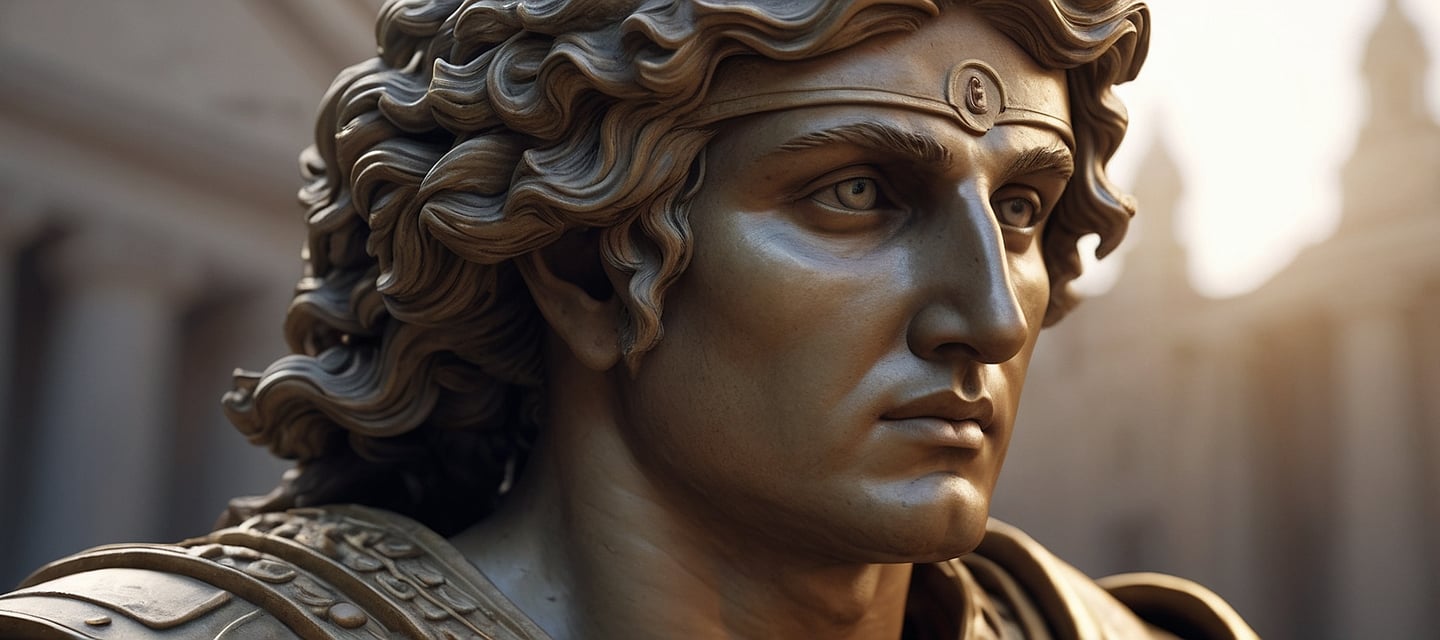Was Greece the Greatest Empire?
Witness the rise and fall of an empire! The captivating story of ancient Greece, where epic battles, legendary leaders, and groundbreaking innovations shaped the world. Uncover the secrets of Greece's glory and its dramatic downfall!
ANCIENT CIVILIZATIONSEMPIRES AND DYNASTIES
Michael Keller
6/3/20243 min read


The Rise and Fall of the Greek Empire: A Dramatic Tale of Power, Glory, and Legacy
In the annals of history, few stories captivate the imagination as vividly as that of the Greek Empire. A civilization that flourished with unmatched brilliance, the Greek Empire’s rise and fall is a dramatic saga of power, glory, and enduring legacy.
The Dawn of a Civilization (c. 800 BCE)
Our tale begins around 800 BCE, in the aftermath of the Greek Dark Ages. From the ashes of a fragmented society, city-states, or "poleis," began to emerge. Among these, Athens and Sparta stood as towering beacons of Greek power and culture. Athens, under the visionary leadership of figures like Solon and Cleisthenes, laid the foundations of democracy. Meanwhile, Sparta, with its formidable military regime, became a symbol of discipline and strength.
The Persian Wars: Unity in the Face of Adversity (499-449 BCE)
The Greek city-states, often at odds with each other, found a common enemy in the vast Persian Empire. In 499 BCE, the Ionian Revolt ignited the flames of the Persian Wars. The heroic stand of 300 Spartans at Thermopylae in 480 BCE, under King Leonidas, became a testament to Greek bravery. The decisive Greek victory at the Battle of Marathon in 490 BCE and the naval triumph at Salamis in 480 BCE, led by Themistocles, marked the beginning of Greek ascendancy.
The Golden Age of Athens (c. 480-404 BCE)
With the Persian threat subdued, Athens entered its Golden Age, a period of unparalleled cultural and intellectual flourishing. Under the leadership of Pericles, the city saw the construction of the Parthenon and became the cradle of Western philosophy, with luminaries like Socrates, Plato, and Aristotle. This era also witnessed the birth of drama, with playwrights such as Sophocles and Euripides penning works that would endure for millennia.
The Peloponnesian War: A House Divided (431-404 BCE)
Yet, the seeds of discord were sown within the Greek world. The Peloponnesian War, a protracted and devastating conflict between Athens and Sparta, erupted in 431 BCE. Fueled by rivalry and power struggles, this war saw Athens' mighty navy pitted against Sparta’s unbeatable hoplites. The war concluded in 404 BCE with the fall of Athens, heralding the decline of the once-mighty city-state.
The Rise of Macedon: A New Power Emerges (359-323 BCE)
In the north, a new power was rising under the astute leadership of King Philip II of Macedon. By 338 BCE, Philip had united most of Greece under his banner following the Battle of Chaeronea. His son, Alexander the Great, inherited this united Greece and set his sights beyond its borders.
Alexander the Great: Conqueror of Worlds (336-323 BCE)
The story of the Greek Empire reaches its zenith with Alexander the Great. Born in 356 BCE, Alexander was tutored by Aristotle, imbuing him with a love for Greek culture and knowledge. Ascending the throne in 336 BCE, Alexander embarked on an unprecedented campaign of conquest. By 331 BCE, he had defeated the Persian Empire, and his dominion stretched from Greece to Egypt and into the heart of Asia, encompassing present-day Turkey, Syria, Lebanon, Israel, Egypt, Iraq, Iran, and parts of India.
The Hellenistic Period: Legacy and Fragmentation (323-31 BCE)
Alexander’s untimely death in 323 BCE at the age of 32 marked the end of his unified empire. The vast territories he conquered were divided among his generals, the Diadochi, leading to the formation of Hellenistic kingdoms such as the Seleucid Empire, Ptolemaic Egypt, and Antigonid Macedon. This period, known as the Hellenistic Age, saw the spread of Greek culture and ideas throughout the known world, blending with local customs to create a rich tapestry of cultural fusion.
The Fall: Rome’s Ascendancy (31 BCE)
The Greek Empire’s story concludes with the rise of another power from the west—Rome. The final blow came in 31 BCE, when the forces of Rome, led by Octavian, defeated the navy of Cleopatra and Mark Antony at the Battle of Actium. With this victory, Rome absorbed the last of the Hellenistic kingdoms, marking the end of Greek political autonomy.
Unique and Lesser-Known Facts
Throughout its history, the Greek Empire was marked by fascinating, lesser-known episodes. For instance, the Spartans had a unique practice called "Crypteia," a secret police force used to control the Helot population through fear and assassination. Additionally, the ancient Greeks invented the concept of the "Olympics," a festival held every four years to honor Zeus, featuring various athletic competitions.
Another intriguing figure is Diogenes of Sinope, a philosopher who famously lived in a barrel and challenged Alexander the Great with his wit. When Alexander offered to grant him any wish, Diogenes simply replied, "Stand out of my sunlight."
The Legacy of the Greek Empire
Though the political might of the Greek Empire waned, its cultural and intellectual legacy endured. The Greeks gave the world democracy, philosophy, theater, and monumental architectural achievements. Their myths and legends, from the trials of Hercules to the odyssey of Odysseus, continue to captivate and inspire.
The story of the Greek Empire is a testament to human ingenuity, resilience, and the unyielding quest for knowledge. It is a saga that reminds us of the heights civilization can reach and the enduring impact of a culture that continues to shape our world.
If you love this topic and want to know more, check out The Spotlight page, and don't forget to subscribe to our blog!

